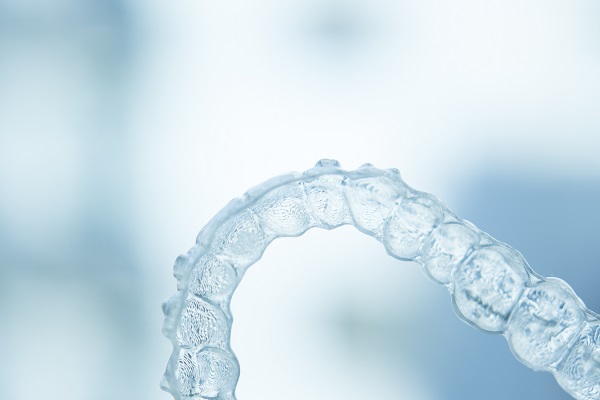5 Questions to Ask Your Invisalign® Dentist Before Beginning Treatment

Invisalign® provides a discreet way to straighten teeth that allows you to show off your teeth as they move towards better alignment. These aligner trays are a sharp contrast to traditional metal braces which are highly conspicuous devices.
5 Questions to go over when considering treatment with Invisalign®
Thinking about giving Invisalign® a shot? Here are some questions you should have answered before starting your treatment so you know exactly what you are getting into:
1. How does treatment with Invisalign® start?
Treatment with Invisalign often starts with a consultation with a dentist. The dentist will evaluate the patient's teeth to ensure Invisalign is the right solution for them. The effectiveness of Invisalign treatments have improved over the years, and it is an effective way to treat poor teeth alignment caused by the position of the patient's teeth.
People with teeth alignment problems that are caused by the position of their jaw might have to explore other options, like metal braces. During the initial consultation, the dentist will take digital images of the patient's teeth and these are used to run projections of what the patient's treatment will look like as well as to create their teeth straightening trays.
2. How long does treatment last?
Treatment with Invisalign® clear aligners often lasts somewhere between six months to a year. The average treatment duration is around a year. The patient sticking to the dentist's recommendation on how to wear their aligner trays often speeds up the process.
3. How often will I need to see the dentist?
The way treatment with Invisalign® works, patients get multiple aligner trays at the start of their treatment. Each is worn for about two weeks before being switched with another that takes the wearer's teeth closer to the desired position.
People undergoing treatment with Invisalign® typically get enough aligner trays to last one or two months. That is how often they have to visit a dentist during their treatment.
4. What happens when a set of aligners is lost or damaged?
Invisalign® aligners trays are designed to be worn for at least 20 hours for the treatment to be effective so it is important to replace lost or damaged aligner trays as soon as possible. In some cases, the patient might be able to switch to the next set of trays if their lost set of aligners have already done their job.
5. Are clear aligners as effective as traditional metal braces?
Yes, treatment with clear aligners can be just as effective as straightening teeth with metal braces. Clear aligners deliver a more precise amount of force on each of their patient's teeth and that sometimes leads to faster results.
Come explore Invisalign®
Contact our Stuart clinic if you are looking for a discreet way to straighten your teeth. Our dentist will examine you and determine whether Invisalign® is right for you or if other oral appliances like braces are better for your unique situation.
Request an appointment here: https://drdelucia.com or call Anthony DeLucia D.D.S., P.A. at (772) 492-7045 for an appointment in our Stuart office.
Check out what others are saying about our services on Yelp: Read our Yelp reviews.
Related Posts
Dental implants provide a durable and long-lasting solution for missing teeth, but like natural teeth, they can be damaged under certain circumstances. Trauma, excessive pressure, or complications with the surrounding structures may compromise the integrity of an implant. Understanding what to do in the event of damage can help prevent further issues and protect oral…
Teeth whitening appeals to everyone with a dull smile, including those with sensitive teeth. While it remains a viable stain-lifting option, sensitivity-prone patients should approach treatment with caution to avoid irritation while still improving smile brightness. Custom take-home trays from a general dentist help control dosage and fit, reducing many common triggers of sensitivity.The teeth…
Dental implants can be an effective and aesthetically pleasing long-term solution for missing teeth. However, misconceptions about implants can make some hesitant to consider them. In order to help patients make an informed decision, it helps to dispel some common myths about dental implants.One of the biggest concerns people have about dental implants is pain.…
Dental implants restore smiles while improving oral health and confidence. Unlike other options, they feel and function like natural teeth. They provide long-term benefits that make eating, speaking, and smiling easier. Their ability to restore all aspects of the smile makes them a leading tooth replacement option.Dental implants can replace one, several, or all of…
